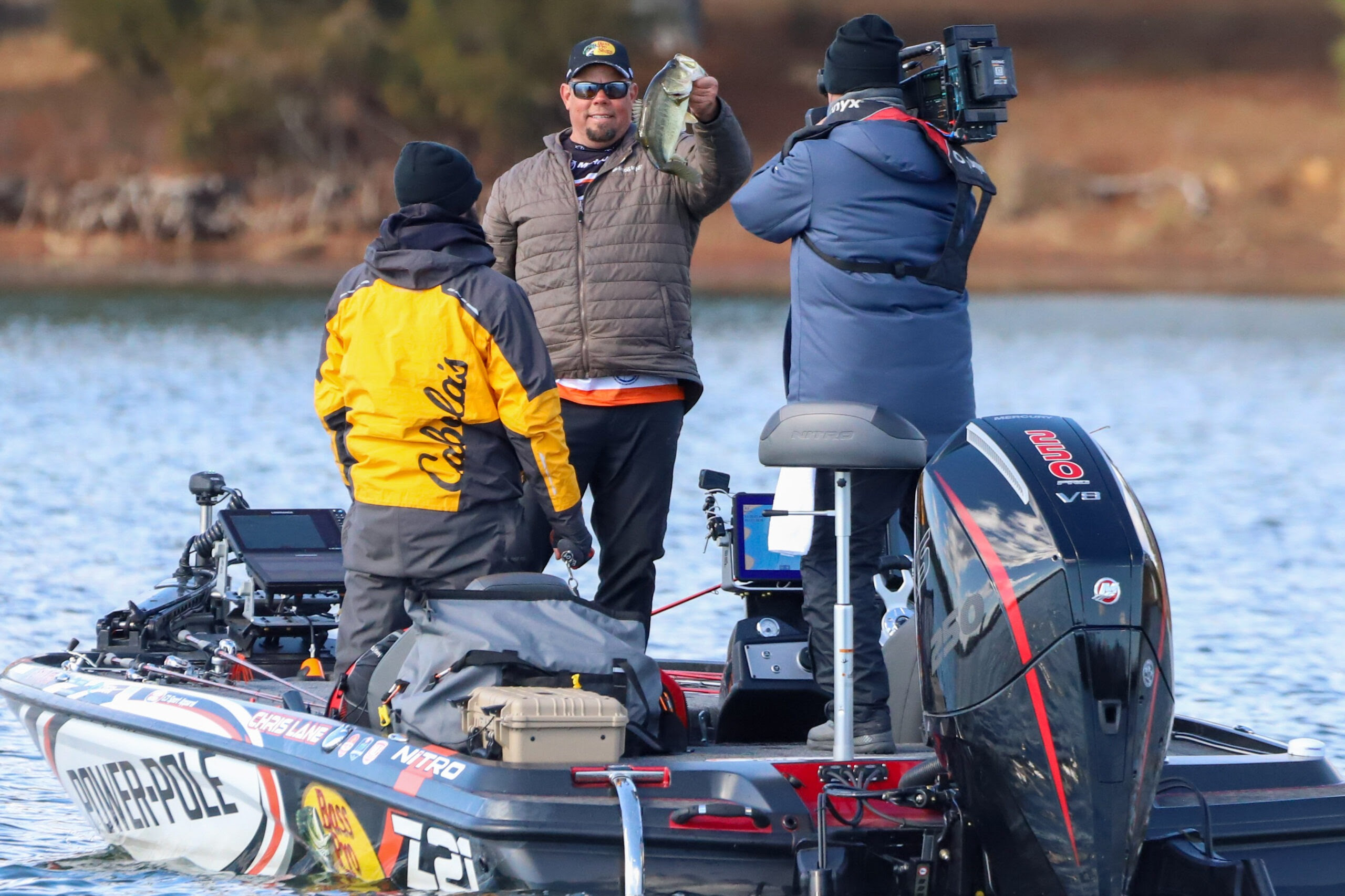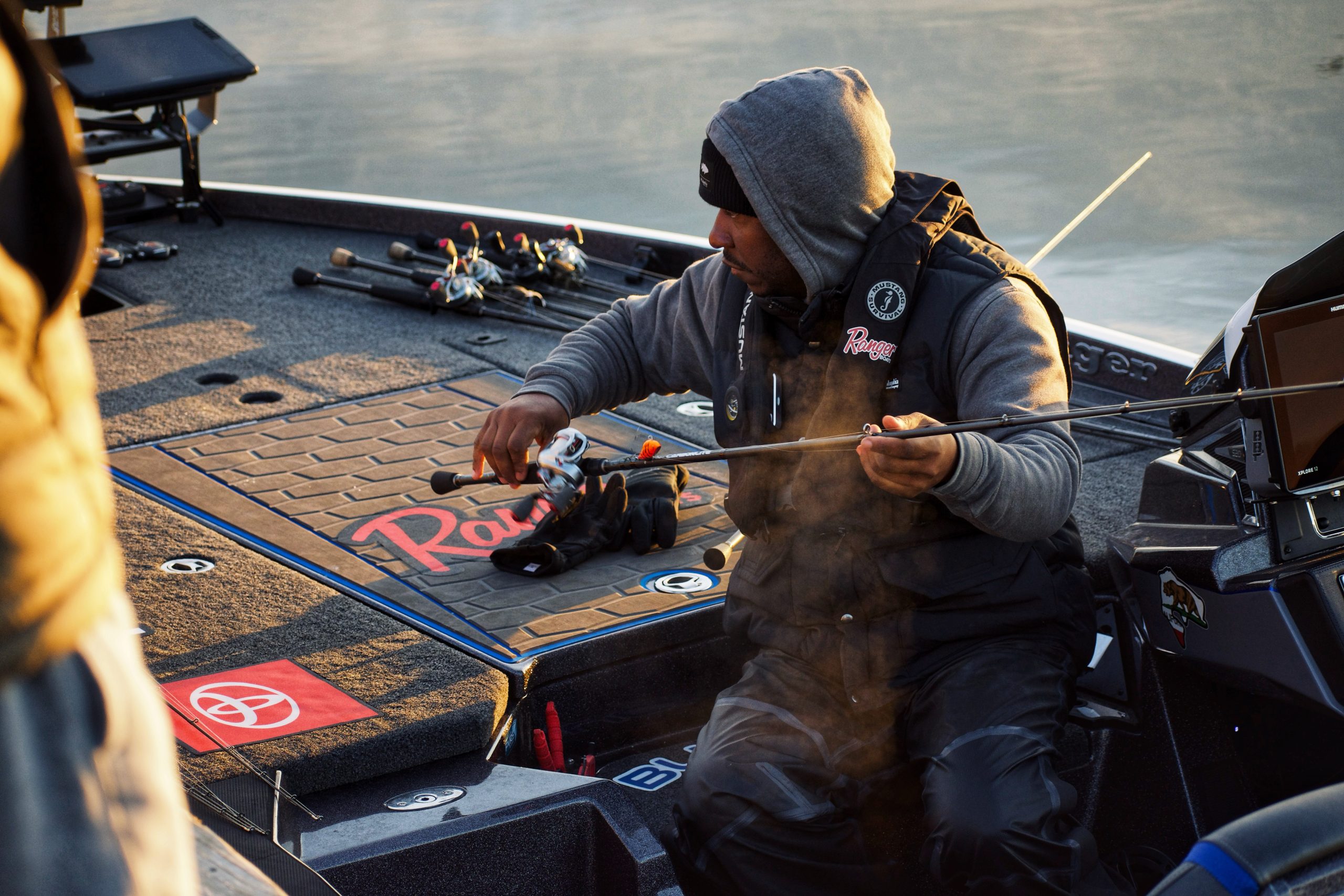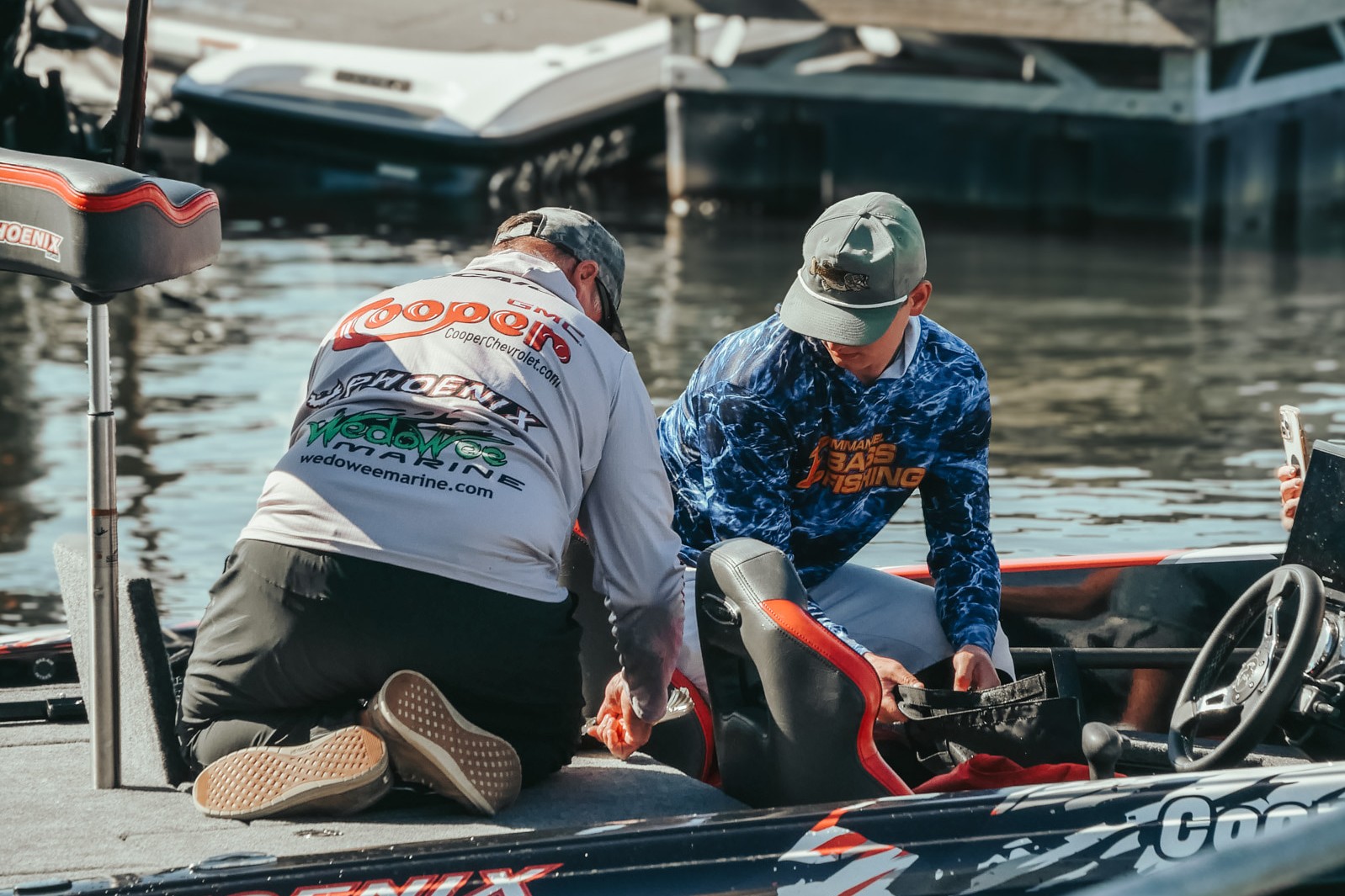Clemson brings accessibility to professional wildlife and fisheries resources degree
Steven Bradley, Media Relations
November 16, 2020
For Josh Caldwell, serving as active-duty military in Utah, getting a professional degree to further his goals for employment with a state or federal fish hatchery when his military career is over didn’t seem feasible at a traditional brick-and-mortar school.
Clemson University graduate student Breanna Ondich observes a turtle during her work at the Georgia Sea Turtle Center. Ondich is one of many students taking advantage of the added accessibility of Clemson’s fully online professional wildlife and fisheries resources degree program.
Image Credit: Clemson University
For Breanna Ondich, already working in her desired field at the Georgia Sea Turtle Center, advancing her education was something she felt necessary to keep up with her peers but difficult to do from her current job’s location on a barrier island off the coast.
For both, the Master of Wildlife and Fisheries Resources (MWFR) degree in Clemson University’s College of Agriculture, Forestry and Life Sciences offered the key ingredient to making their educational goals possible: accessibility.
With a new online delivery option for students with experience in natural resources who wish to enhance their professional degree skills, the non-thesis program is in a fully online format, allowing lectures to be available 24/7.
Program Coordinator Thea Hagan said it is a widely appealing option for students who are passionate about wildlife and would like to get into the field, but did their undergraduate work at a non-land-grant university or one without a wildlife-specific program and who need to narrow their academic focus as they move into graduate work.
“Most, if not all, of them would like to come to campus and do a thesis-based degree, but they can’t for any number of reasons — financial or because they are place-bound or otherwise,” Hagan said. “So, within that group, we’ve made a degree available to people who would not have been able to pursue it otherwise. They can work full time and still take our classes, and nearly 100 percent of the students in the program have a full-time job and are doing the degree and take one or two classes each semester.”
That is true for Ondich, who said she has been able to “ease in” to the degree program in a manner and speed that allowed her to continue her research work at the Georgia Sea Turtle Center while also pursuing an advanced degree.
Ondich was hired at the Georgia Sea Turtle Center, a wildlife rehabilitation hospital that also has a learning center for education located on Jekyll Island, after completing her undergraduate work. And while graduate school always remained a possibility for her future plans, Ondich said she did not want to risk giving up a full-time position in her chosen field.
Now two years into the program, Ondich said she would need “about a year” to complete it at a pace she is comfortable with.
“I’ve been doing about one class per semester, and one of the things that is helpful to me is my employer offers tuition reimbursement up to a certain amount per fiscal year, so that was also a motivator to me to do this program because I don’t know if I could afford it on my own,” she said.
Cost was also a concern for Caldwell, who is stationed at Hill Air Force Base in Utah and working as a weather forecaster, as he sought to pursue the master’s degree he needed to further his biology degree.
“Trying to figure out how to pay for school without going into debt and going straight from undergraduate to graduate to Ph.D. is so expensive because you can’t really work full-time while you’re doing that,” Caldwell said.
Clemson University graduate student Josh Caldwell smiles and poses after returning home from UAE and being reunited with his now wife.
Image Credit: Clemson University
While Caldwell admitted that many military members were able to attend “brick-and-mortar” schools during their service, he noted that it was often for more general degrees that don’t require labs or a thesis.
“Because a typical master’s degree requires labs and thesis work, doing that as active duty is almost impossible,” he said. “With something else, like a leadership degree or something, you might be able to do the research and write it at home. But you really can’t do that without equipment for a science degree.
“The program is still young and they’re still adding new classes, but what I’ve taken so far has been extremely interesting and rewarding — and very stressful, because it’s still graduate-level education,” he added.
For Department of Forestry and Environmental Conservation Chair Todd Petty, who was recently hired to the role after serving for the past five years as an Associate Dean of Academic Affairs at West Virginia University, creating a program such as the Master of Wildlife and Fisheries Resources degree would have been his top priority upon arrival at Clemson … had it not already existed.
“In the environmental conservation field, a professional degree is necessary in order to do what you want — an undergrad degree is not enough — and what happens in the real world is it creates this enormous bottleneck for master’s degrees,” Petty said. “There’s limited space in professors’ labs … but the profession demands grad students. What the online master’s can do is it can help to break that bottleneck. It gives advanced education in a profession that demands it and it gives it in a way that becomes accessible.”
Petty said another key component of the program’s success has been Hagan’s prowess at maintaining the quality of education and experience in a learning environment that is remote rather than in-person.
“Thea is very innovative in helping our faculty add the experiential pieces that are needed in our profession into these online classes,” Petty said. “Accessibility to this highly valued Clemson education — you’re not just throwing out this education and putting Clemson’s name on it. It’s a Clemson education that you’re making more accessible, and you’ve got to be innovative in order to do that, in order to keep that whole package together.”













